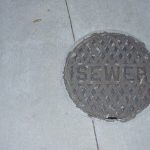Hiring a local licensed and certified plumbing to carry out repairs and remodeling projects is a smart idea. But, taking a proactive approach and adopting a preventative maintenance routine can prevent or minimize the risk of many potential problems. In this article, we will look at five useful plumbing tips that you can follow in 2022.
1. Avoid Pouring OIls and Fats in the Drain
The drain is designed to handle wastewater and pouring grease and oil is a bad idea. Some people pour hot grease in the drain after cooking, but these turn solid after they cool down to room temperature. This will form a clog in the drain that is sticky and congealed and over time other materials will stick to it. This will act as a breeding ground for bacteria when food debris adheres to the surface of the clog. The result is a smelly drain that’s prone to clogging, but this is avoidable.
2. Clean Away Soap Scum
Hard water prevents the formation of soap suds and the mineral ions create a hard and waxy residue that we refer to as “soap scum”. This material contains unused fatty acids and minerals that can create clogs in the pipes and drains. They are also a breeding ground for bacteria and they can be hard to clean. Spraying soap scum with white vinegar and scrubbing the area will be effective. Soap scum in the drain can be melted with hot (not boiling) water to get the drain moving again. But, these are only temperature fixes and until the underlying hard water issue is resolved soap scum will return.
3. Install Basket Strainers
Most of us have at some point pulled a long and tangled mess of soap scum and hair out of a bathroom drain. This is a common occurrence in homes which use traditional bar soaps that can turn solid in the drain unlike liquid soaps. The situation is exacerbated in the kitchen drain when food waste from rinsed pans, pots and plates enters the drain. The easiest and most effective way to prevent this buildup of material is to install a basket strainer. The inexpensive strainers will catch scraps of food, hair strands and soap pieces before they enter the drain and cause a clog.
4. Only Flush Toilet Paper
A toilet is only designed for the flushing of toilet paper and human waste. Toilet paper is specially designed to break down after flushing unlike “flushable wipes” and kitchen paper. Flushing any other materials, including: cleaning wipes, diapers, unused medicine, sanitary products, cotton balls and others, will cause a toilet clog.
5. Protect Plumbing Pipes
Some people use exposed plumbing pipes to hang items or they stack boxes against them in the basement. Although these pipes may seem tough, they are vulnerable to external forces and they can break. This is equally true for the pipes that you cannot see and extra care should be taken when drilling holes in walls or hammering in a nail.
If you have a plumbing problem, contact your local licensed and certified plumber today.





